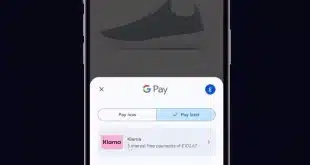Online PINless debit transactions could get a boost if a package of four new mobile-payments services from Obopay Inc. proves to be a hit. Dubbed Mobile Money for Banks, Obopay’s new white-label service has another interesting twist besides PINless debit in that it will enable consumers to accept payment cards.
Mobile Money for Banks marks a more prominent U.S. presence for Redwood City, Calif.-based Obopay, which already provides a front-end interface for MasterCard Inc.’s MoneySend remittance system and has a person-to-person mobile-payments service with processor Fidelity National Information Systems Inc. (FIS). “In a lot of ways, this is a culmination of everything we’ve been working on the last five years,” David Schwartz, head of product and corporate marketing, tells Digital Transactions News. “We’ve enhanced our offering to make it really easy for banks to come aboard.”
Obopay, which received a $25 million investment last year from No. 1 cell-phone maker Nokia Corp., has been most active in foreign markets for the past couple of years, having introduced mobile financial services in India and Kenya. Obopay’s new U.S. service is designed for smart phones, including the Blackberry and iPhone, and uses text messaging, online, and telephone-based communications, depending on the client’s wishes. Obopay will charge client banks, which will put their own brands on the service, a per-transaction fee varying by volume, with banks setting retail pricing.
The “Get Paid by Obopay” component of Mobile Money for Banks enables small businesses and even individuals to accept debit card or automated clearing house payments from anyone, with funds moved directly into the recipient’s bank account. Like PayPal Inc. with some of its services, Obopay will stand in as the merchant of record, according to Schwartz. Recipients don’t need to have a Mobile Money for Banks account.
The “Mobile P2P by Obopay” service enables bank customers to send money from a bank account to anyone by using a signature or PIN debit card. For PIN debit card-funded transactions, Obopay is working with the Star, NYCE, and Pulse EFT networks, which offer services enabling cardholders to bypass PIN-entry for online debit card transactions. Payors initiate a transaction through their online-banking credentials and provide the phone number of the recipient, who doesn’t need to be enrolled in the service. Recipients are directed to enter their phone number, bank-routing number, or debit card number.
A third component of Mobile Money for Banks is another twist on P2P payments called “Family Money by Obopay” that enables a parent to fund a prepaid card or the bank account of a family member, such as child away at college. The service’s fourth component is “Transfer Money by Obopay,” which enables money transfers from one bank to an account at another.
One risk is that in offering PINless debit, Obopay might forgo some potential bank clients because they would get less revenue than they would if all card-funded transactions were linked to signature debit cards, which generally cost merchants more to accept than EFT network debit cards. “I think there is an opportunity there—low cost, but banks are going to have to decide how excited they are about lower interchange,” says James Van Dyke, president of Javelin Strategy and Research, which has studied the mobile-payments and banking markets. “I’m not sure.”
But Schwartz emphasizes that the low cost of PINless debit will translate into lower pricing for consumers, which will help spur adoption and transaction volume, not to mention the potential to displace cash and check transactions. Another advantage: Funds sent by PIN-debit cards are credited that day, while ACH-funded debits don’t clear until the next day. Banks will have their choice as to which funding source they prefer for their customers, Schwartz adds. “It depends on the bank,” he says, noting that some may designate 100% of their transactions as PINless debit and “some may not do it at all. So it’s really going to vary.”
Meanwhile, bank processor Fiserv Inc. on Monday announced the brand name of its new P2P service: ZashPay. The service will be available early this summer to a network of more than 3,100 financial institutions and 16 million consumers that already use Fiserv’s CheckFree RXP online bill-payment service. Fiserv disclosed late last year that it was working on a new P2P service that its bank and credit-union clients could offer to their customers (Digital Transactions News, Nov. 6, 2009).





